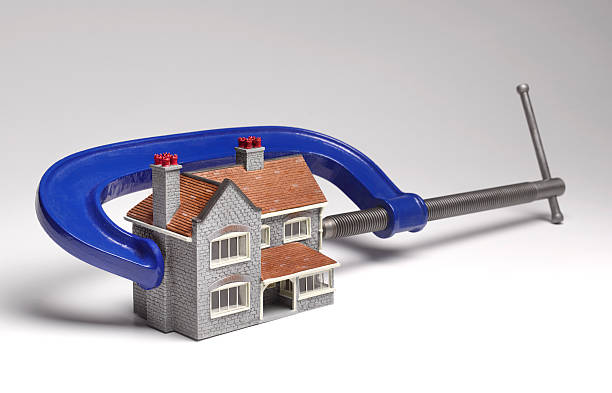 The burden of overextended personal debt extends far beyond a simple numbers on a ledger; it manifests as a relentless and pervasive form of financial stress that infiltrates every corner of an individual’s life. This stress is not a fleeting worry but a constant, low-grade hum of anxiety that accompanies every purchase, every unexpected expense, and every quiet moment of reflection. It transforms financial management from a routine task into a source of deep psychological strain, impacting mental well-being, personal relationships, and even physical health.This anxiety is rooted in a profound loss of control and a feared future. The relentless cycle of monthly payments, where a significant portion of income is allocated to servicing past consumption rather than present needs or future security, creates a sensation of running in place. The knowledge that an unforeseen event—a car breakdown, a medical bill, a reduction in work hours—could instantly topple the precarious balancing act leads to a state of hyper-vigilance. Sleep is lost over calculating how to make ends meet, and the mailbox becomes a source of dread, potentially containing another bill or a past-due notice. This constant state of alarm triggers a physiological stress response, which, over time, can contribute to serious health issues like hypertension, depression, and a weakened immune system.Furthermore, financial stress is intensely isolating. Shame and embarrassment often prevent individuals from discussing their struggles openly, even with close family members. This secrecy can breed resentment and conflict within relationships, as spending habits are scrutinized and tough choices about priorities must be made. The weight of debt can stifle ambition and risk-taking, as the security of a steady paycheck becomes paramount, trapping individuals in unsatisfying jobs and limiting personal and professional growth.Ultimately, the stress of overextended debt creates a paradox: the very tools meant to provide convenience and opportunity—credit cards, loans, and financing plans—become the instruments of confinement. They dictate life choices, curtail freedom, and cast a long shadow over one’s future prospects. The path to relief is not merely a mathematical equation of debt repayment but a journey toward reclaiming a sense of agency, reducing the mental burden, and restoring the peace of mind that is the ultimate casualty of financial overextension.
The burden of overextended personal debt extends far beyond a simple numbers on a ledger; it manifests as a relentless and pervasive form of financial stress that infiltrates every corner of an individual’s life. This stress is not a fleeting worry but a constant, low-grade hum of anxiety that accompanies every purchase, every unexpected expense, and every quiet moment of reflection. It transforms financial management from a routine task into a source of deep psychological strain, impacting mental well-being, personal relationships, and even physical health.This anxiety is rooted in a profound loss of control and a feared future. The relentless cycle of monthly payments, where a significant portion of income is allocated to servicing past consumption rather than present needs or future security, creates a sensation of running in place. The knowledge that an unforeseen event—a car breakdown, a medical bill, a reduction in work hours—could instantly topple the precarious balancing act leads to a state of hyper-vigilance. Sleep is lost over calculating how to make ends meet, and the mailbox becomes a source of dread, potentially containing another bill or a past-due notice. This constant state of alarm triggers a physiological stress response, which, over time, can contribute to serious health issues like hypertension, depression, and a weakened immune system.Furthermore, financial stress is intensely isolating. Shame and embarrassment often prevent individuals from discussing their struggles openly, even with close family members. This secrecy can breed resentment and conflict within relationships, as spending habits are scrutinized and tough choices about priorities must be made. The weight of debt can stifle ambition and risk-taking, as the security of a steady paycheck becomes paramount, trapping individuals in unsatisfying jobs and limiting personal and professional growth.Ultimately, the stress of overextended debt creates a paradox: the very tools meant to provide convenience and opportunity—credit cards, loans, and financing plans—become the instruments of confinement. They dictate life choices, curtail freedom, and cast a long shadow over one’s future prospects. The path to relief is not merely a mathematical equation of debt repayment but a journey toward reclaiming a sense of agency, reducing the mental burden, and restoring the peace of mind that is the ultimate casualty of financial overextension.
This involves applying any unexpected or small amounts of extra money—like a tax refund, bonus, garage sale proceeds, or money saved from skipping a luxury—directly to your debt. These small, consistent efforts can significantly accelerate your payoff timeline.
Calculate your Debt-to-Income (DTI) ratio. If your total monthly debt payments divided by your gross monthly income is above 36-40%, you are likely overextended. Also, a Payment-to-Income (PTI) ratio above 20% is a strong cash-flow warning sign.
Long auto loan terms (72-84 months) often lead to negative equity, meaning the borrower owes more than the car is worth. This traps them in the loan and can lead to rolling over old debt into a new loan, perpetually increasing their debt load.
Medicaid, hospital charity care programs, and state-specific assistance programs may offer relief. Nonprofit credit counselors can also provide guidance.
Your 20s are a foundational financial decade. The habits you build now set the tone for your future. Tackling debt early reduces the amount of interest you pay over your lifetime, freeing up money for investing, saving for a home, and other major goals. It's about building momentum.